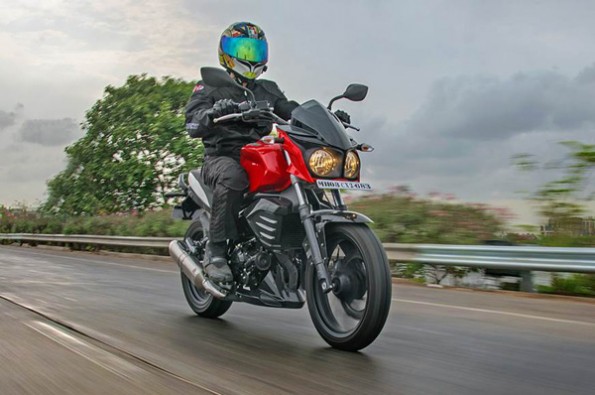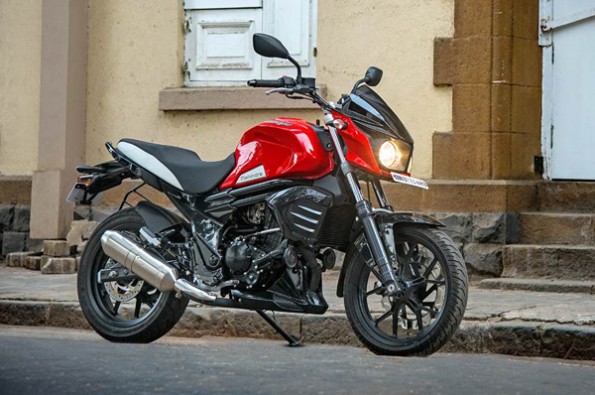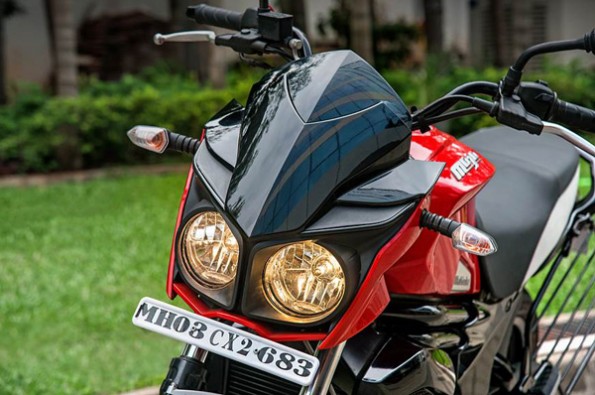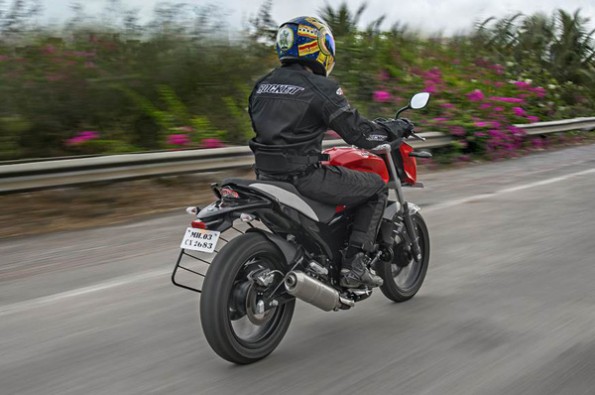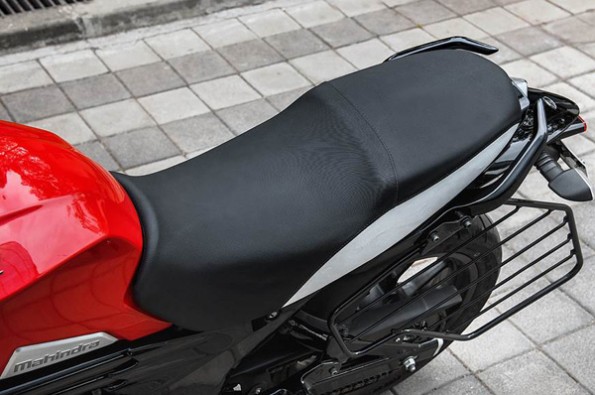The Mojo UT 300 (the UT stands for Universal Tourer) is sold alongside the XT 300 (Xtreme Tourer) but is much cheaper to own. On the UT 300, most of the Mojo’s highlights remain, but there is a lot that’s different to keep prices down.
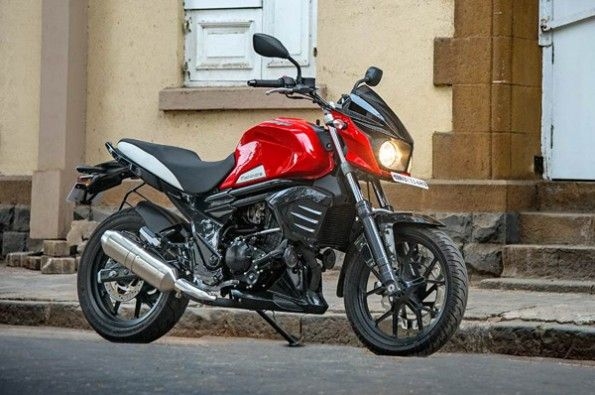
This version gets a single-tone colour scheme as opposed to the dual tone colours of the XT 300. It has a redesigned headlight cowl without the eyebrow LED DRLs seen on the XT. It also is fitted with a much simpler, more cost-efficient front mudguard with exposed bolts and it comes with a conventional fork that replaces the golden-coloured upside-down unit.
The bike has the same blacked-out engine, belly pan and large 21-litre fuel tank as its more expensive sibling. While it has the same aluminium finished upswept muffler, you’ll notice there’s a missing muffler on the left side of the bike - the twin muffler set-up had to go. The bike comes with a black tail section on both its colour options (red and blue).
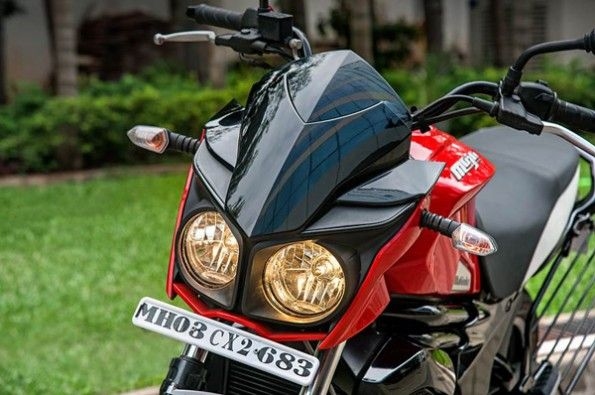
The bike is powered by the same 294.7cc single-cylinder, liquid-cooled engine which uses a carburettor instead of a fuel injection. The unit makes 23.1hp and 25.2Nm while the fuel-injected XT 300 makes 27hp and 30Nm more. The engine is mated to the same smooth and precise six-speed gearbox as the XT. Wheelbase is down by 5mm (to 1,460mm), and ground clearance has gone down by 8.5mm to 165mm. Thanks to the longer rear seat, the bike is longer by 15mm and it has shed 4.5kg over the XT 300.
This engine is smooth, but there is a small, yet noticeable drop in refinement, which you notice as you go faster - the vibrations build up in the tank and footpegs. It’s not as free-revving as it was before, and the effortless nature of the engine, especially on the highway, has been compromised to some extent. This bike is more fuel efficient – in the city it’s gone up to 29.1kpl from 28kpl, while on the highway it has gone up from 33.4kpl to 38.7kpl. The riding position continues to be very relaxed with a high-set handlebar and a footpeg position that allows you to comfortably stand on the pegs and stretch out from time to time. The suspension absorbs bumps well and the overall ride quality is comfortable, but a tad firm.
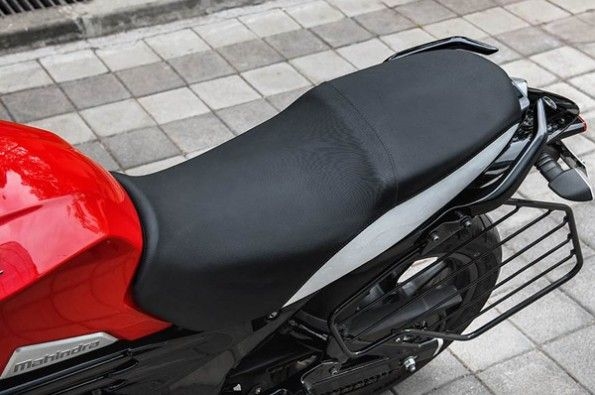
Thanks to cost cutting, the Pirelli Diablo Rosso II tyres have made way for bias-ply MRF Zappers instead. These tyres work well enough in the dry and grip was good, it just lacks a bit of grip when attacking a corner at speed. The brakes haven’t changed, and they continue to lack enough bite and require heavy input from the rider. The non-adjustable brake/clutch levers are set too far out and are uncomfortable to use.
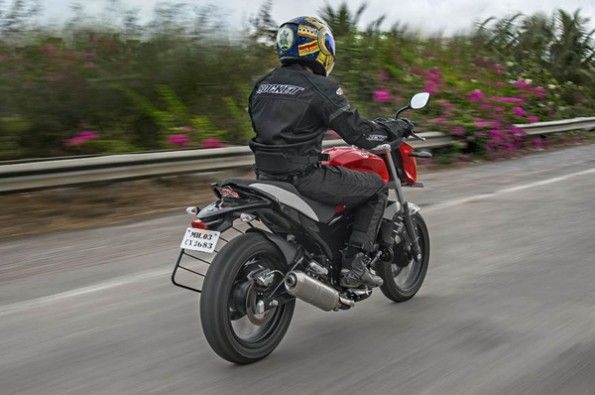
Should I buy one?
The UT 300 costs Rs 1.49 lakh (ex-showroom, Delhi), which is exactly Rs 25,000 cheaper than the fully-specced Mojo XT 300 which is priced at Rs 1.74 lakh (ex-showroom, Delhi). While some of its funky elements are missing, if you’re solely interested in the Mojo’s unusual design, the UT 300 is worth the money saved.
